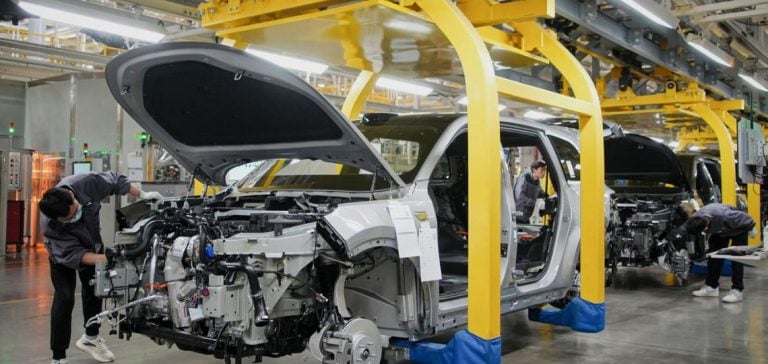The automotive industry is going through a period of transformation, driven by the gradual adoption of electric vehicles (EVs). This structural change is having a direct impact on the automotive repair sector, a market estimated at 38.5 billion euros in 2022, and set to reach around 40 billion by 2030, according to a TCG Conseil study carried out for Mobilians.
However, this overall sales figure conceals significant changes in the nature of interventions and margins for professionals in the sector.
Although less demanding in terms of traditional maintenance, EVs have specific characteristics that are transforming garage activity.
With a reduced number of mechanical parts, the absence of certain routine services such as oil changes, and the increased durability of components, garages could see a reduction in recurring interventions.
This change is reinforced by technological advances that improve the reliability of electronic systems and extend vehicle life.
As a result, the structure of maintenance costs is changing, prompting professionals to diversify their offerings to compensate for this loss of revenue.
More expensive repairs for electric vehicles
While EVs require fewer mechanical repairs, the costs associated with post-crash repairs are significantly higher than for internal combustion vehicles.
Batteries, key components of EVs, are particularly vulnerable in the event of an accident.
The cost of replacing or repairing these batteries adds to the bill for customers, with an estimated 25% increase compared to combustion vehicles.
This trend is also fuelled by the growing use of costly materials such as aluminum and carbon fiber in the construction of EVs, elements which make interventions more complex.
The TCG Conseil study points out that, while the frequency of interventions could fall, particularly for conventional claims, the higher costs of complex repairs could partly offset this reduction.
Garages are therefore forced to redirect their business towards higher value-added segments.
ADAS systems and loss reduction
Advanced driver assistance systems (ADAS) also play a central role in this transformation.
These technologies, such as emergency braking and lane-keeping, are reducing the frequency of minor accidents, leading to a predicted 11% drop in body and glass-related claims by 2030.
This has a direct impact on the nature of workshop work, with garages seeing their margins on minor repairs shrink.
However, ADAS are still in their maturation phase, and have yet to reach their full potential in terms of accident reduction.
Their growing use is also raising concerns about driver attention, with some drivers becoming too dependent on these technologies.
This creates a paradox: a drop in the number of minor accidents, but a potential increased risk for more serious accidents, partly linked to increased inattention.
Diversifying services for garages
Faced with these developments, garages can no longer be content with their traditional business model.
Technical inspections, periodic maintenance services and the sale of spare parts for home installation are becoming key segments for maintaining profitability.
Market players are also turning to complementary activities such as car washes and the sale of car accessories, services which help to offset the decline in mechanical interventions.
The transformation of the automotive after-sales market is not solely due to electric vehicles.
The spread of shared mobility offers, the rise of low-emission zones (ZFE) in major cities and the ageing of vehicles on the road are also influencing demand.
These trends are prompting consumers to turn to more sustainable mobility solutions and adopt different driving behaviors, thereby reducing annual vehicle mileage and, consequently, the need for maintenance.
Adapting to changes in the vehicle fleet
The convergence of these factors means that the automotive repair sector is at a turning point.
Traditional players, often focused on mechanical services and regular interventions, will need to develop new skills, particularly around the repair of electronic components, battery systems and on-board technologies.
This is essential if we are to meet the needs of a customer base that is evolving with the growing adoption of EVs and driver assistance technologies.
Ultimately, growth in the automotive after-sales market between now and 2030 will not be the result of a simple increase in mechanical interventions, but of a complete redefinition of the services offered by garages.
Those who know how to diversify their offer and adapt to these new technologies will come out on top.






















